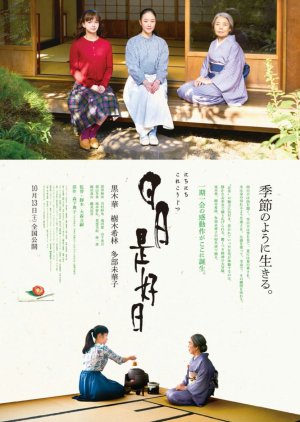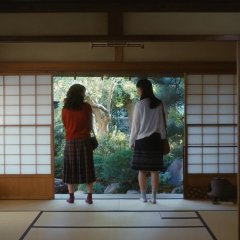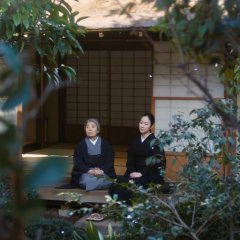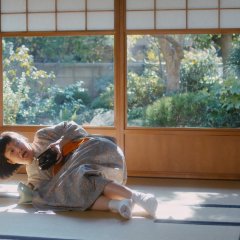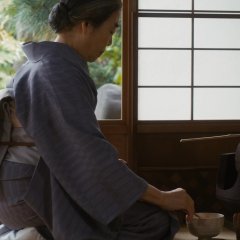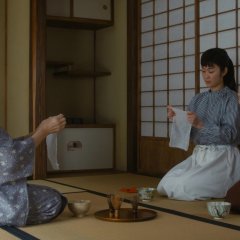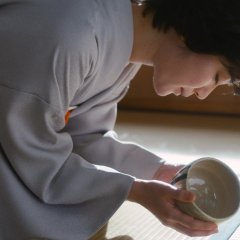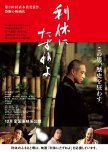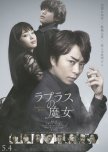 The Results Of The '42nd Japanese Academy Awards' Are In!
The Results Of The '42nd Japanese Academy Awards' Are In! - Nederlands
- 中文(台灣)
- English
- magyar / magyar nyelv
- Oorspronkelijke titel: 日日是好日
- Ook gekend als: Every day is a Good Day , Nichinichikorekojitsu , Nichi Nichi Kore Kojitsu
- Scenarioschrijver & regisseur: Omori Tatsushi
- Genres: Leven, Drama
Cast & Credits
- Kuroki HaruNorikoHoofdrol
- Kiki Kirin Hoofdrol
- Tabe MikakoMichikoHoofdrol
- Tsuruta MayuYukinoBijrol
- Tsurumi Shingo[Noriko's father]Bijrol
- Harada MayuTadokoroBijrol
beoordelingen

Deze recentie kan spoilers bevatten
Basically, Every Day A Good Day is about finding the fire which ignites the spark within consequently giving life meaning. Noriko, the main female character, always fondly mentions La Strada, one of Federico Fellini's most celebrated films and it's not difficult to figure out why. Just as the character/s in the aforesaid award-winning Italian film, she likewise sees herself as a drifter searching for a real purpose in life. Attending a Japanese tea ceremony on a singular occasion as a guest is perhaps one of the most wonderful things I've ever experienced. I hope to experience it once more, and I hope you'll get to experience it as well. In the initial scenes, we witness Mrs. Takeda, the tea sensei, admonishing Noriko (and Michiko) for analysing every step in the Way of Tea. This is because analysis runs contrary to the precepts of Zen Buddhism which holds primacy over the path of action in conjunction with meditation in performing a task or learning a skill because only in this way can harmony with nature and innate tranquilitea be achieved.
''In the practice of tea, a sanctuary is created where one can take solace in the tranquility of spirit.''
I highly recommend a book called Chado (The Japanese Way of Tea) most esp. if you're an enthusiast of tea and/or if you're on the path towards serenity.
Vond je deze recentie nuttig?

Deze recentie kan spoilers bevatten
Beginner’s Guide to Japanese Tea Ceremony (aka The Omotesenke way of tea)
This was not a movie with much of a plot or things happening, except for one major incidence near the end. Still, one did not watch this movie for such mundane things as a storyline.The moments leading up to, and scenes of the practice of preparing a bowl of tea (Matcha, in this context) were the sum and whole of the story.
A story about a young woman adrift in the world, looking for her purpose in life.
This movie was not about her finding her meaning in life, but about how her constant companion, the practice of Sado, gave her important lessons about living life, in the moment, one whisk of tea at a time,
True to its title, it was a visual meditation on some Zen Buddhist philosophy as practiced within the framework of Sado ( 茶道, Way of Tea Ceremony), specifically the practice founded by Sen Rikyu a few hundred years ago. This movie perhaps more accurately depicted the teachings, style and aesthetics of the Omotesenke School (as evidenced by the wooden plaque at the gate of the Sensei’s house).
If one is a tea and pottery - or the Wabi Sabi aesthetic - enthusiast, this movie will be a feast for the eyes, heart and mind. Each frame and scene was beautifully captured to immerse one in the rusticity and simplicity of the Sado and Wabi aesthetics of a tea room. And through the glass bottom half of the sliding door, one was ensured arresting glimpses of an exquisite Japanese garden which emphasized the flow of, and the beauty of the changing seasons.
(I was also gawking at the beauty of the tea utensils throughout).
A comforting, slow and wonderfully calming movie with lovely performances.
If one is in the right frame of mind to be imparted some nuggets of wisdom about how to make “everyday a good day”, this would be a good movie.
Vond je deze recentie nuttig?

